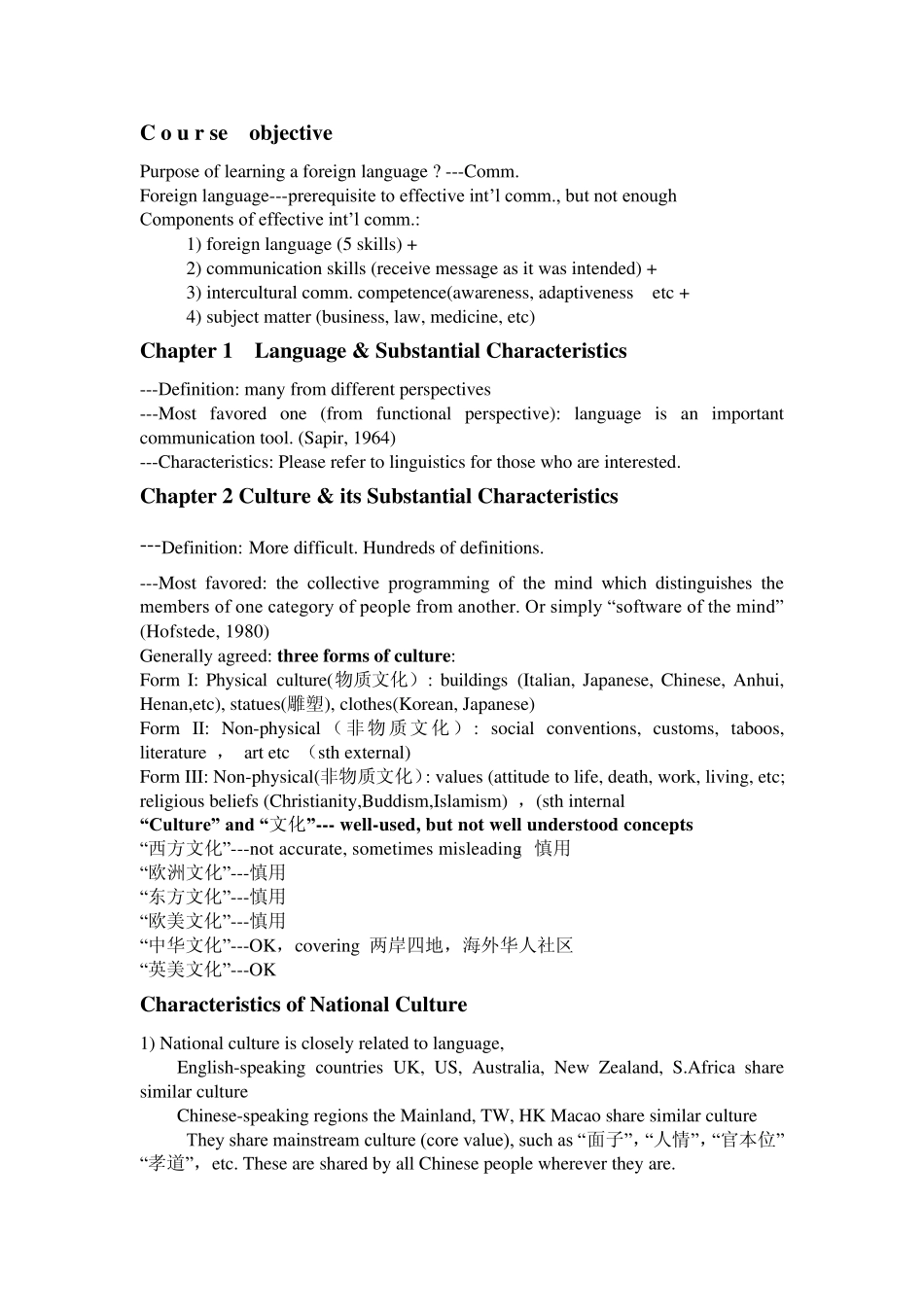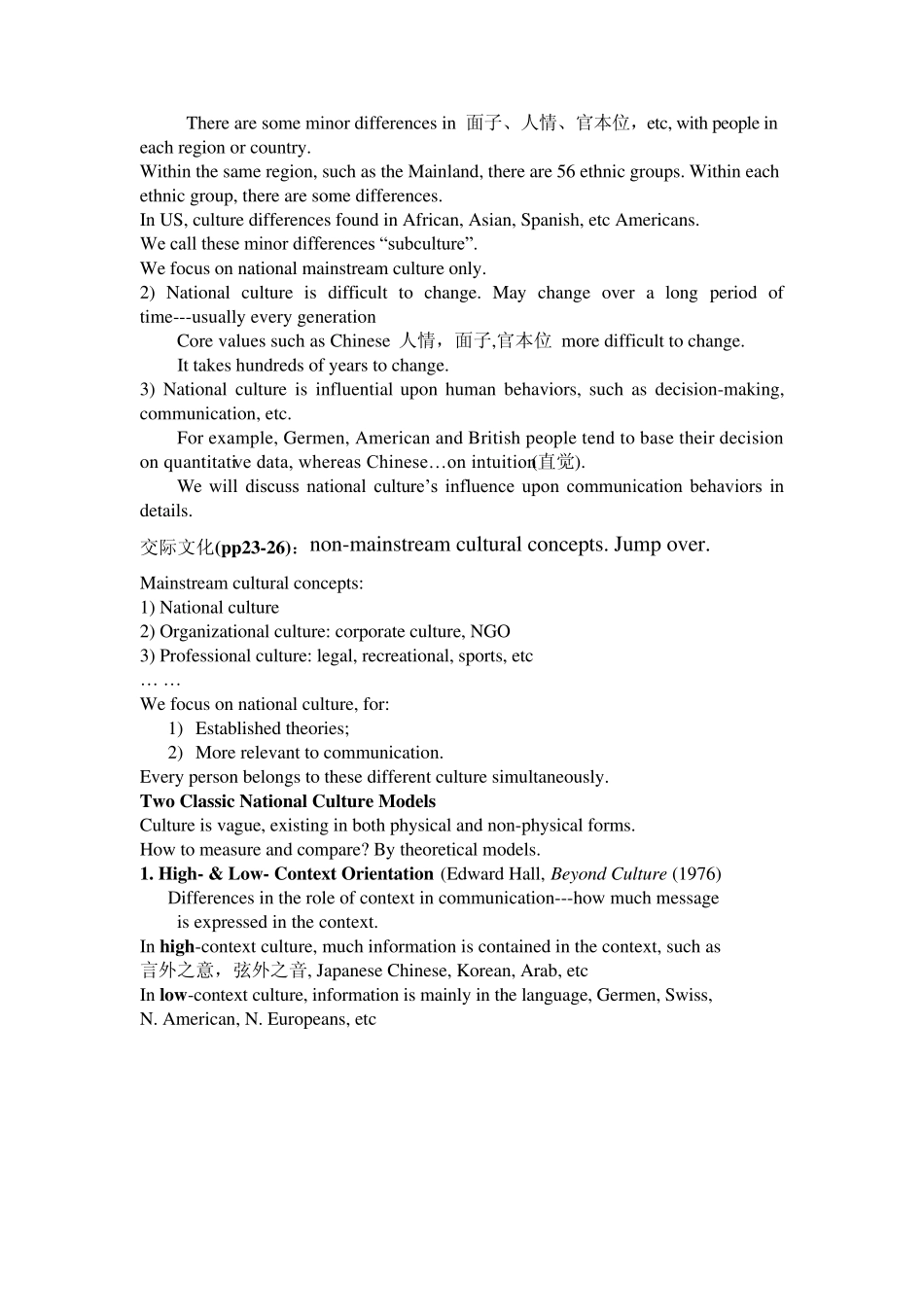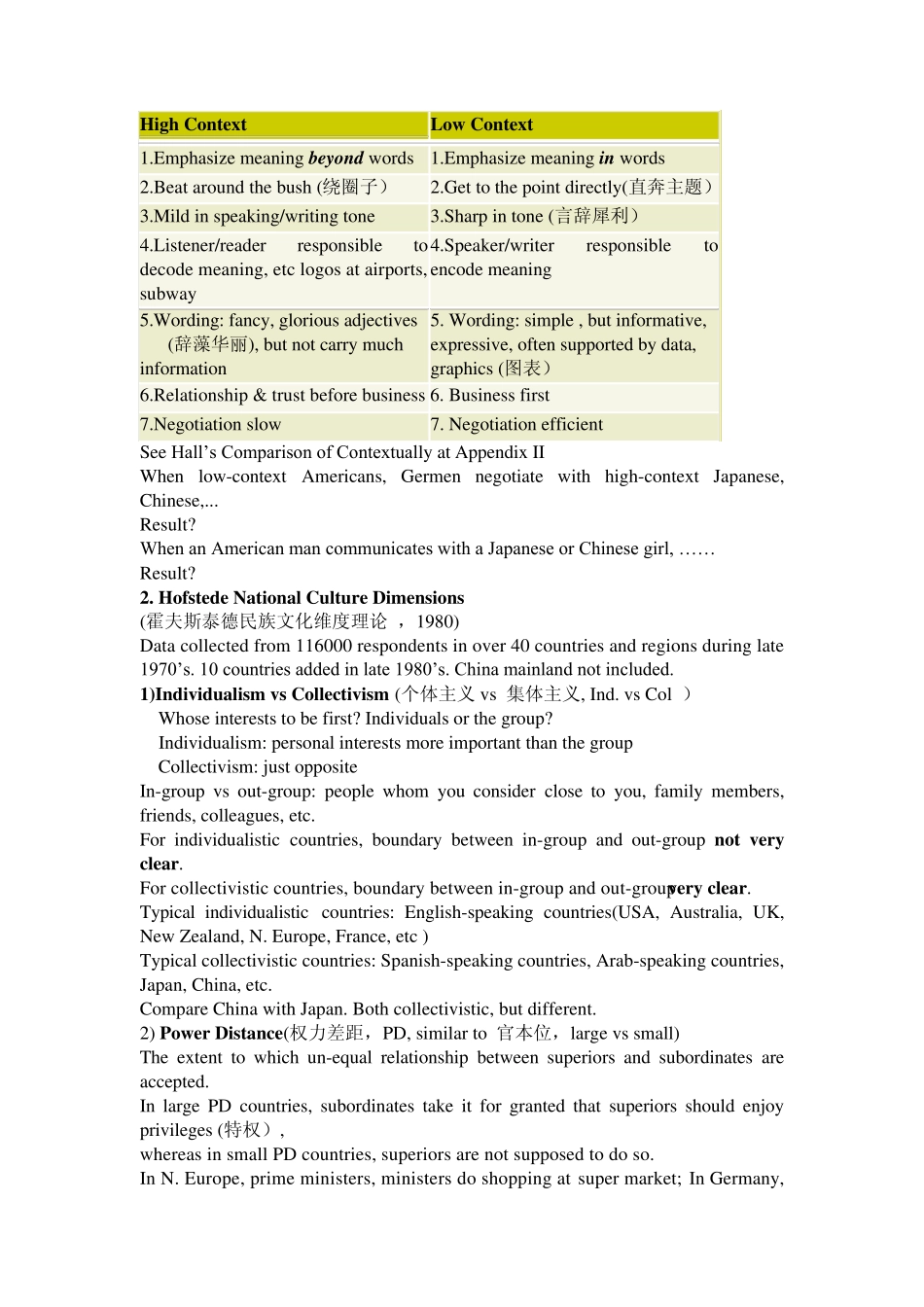C o u r se objective Purpose of learning a foreign language ? ---Comm. Foreign language---prerequisite to effective int’l comm., but not enough Components of effective int’l comm.: 1) foreign language (5 skills) + 2) communication skills (receive message as it was intended) + 3) intercultural comm. competence(awareness, adaptiveness etc + 4) subject matter (business, law, medicine, etc) Chapter 1 Language & Substantial Characteristics ---Definition: many from different perspectives ---Most favored one (from functional perspective): language is an important communication tool. (Sapir, 1964) ---Characteristics: Please refer to linguistics for those who are interested. Chapter 2 Culture & its Substantial Characteristics ---Definition: More difficult. Hundreds of definitions. ---Most favored: the collective programming of the mind which distinguishes the members of one category of people from another. Or simply ―software of the mind‖ (Hofstede, 1980) Generally agreed: three forms of culture: Form I: Physical culture(物质文化): buildings (Italian, Japanese, Chinese, Anhui, Henan,etc), statues(雕塑), clothes(Korean, Japanese) Form II: Non-physical (非物质文化): social conventions, customs, taboos, literature , art etc (sth external) Form III: Non-physical(非物质文化): values (attitude to life, death, work, living, etc; religious beliefs (Christianity,Buddism,Islamism) ,(sth internal “Culture” and “文化”--- w ell-used, but not w ell understood concepts ―西方文化‖---not accurate, sometimes misleading,慎用 ―欧洲文化‖---慎用 ―东方文化‖---慎用 ―欧美文化‖---慎用 ―中华文化‖---OK,covering 两岸四地,海外华人社区 ―英美文化‖---OK Characteristics of National Culture 1) National culture is closely related to language, English-speaking countr...


